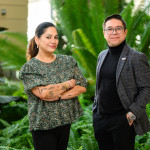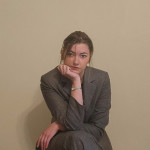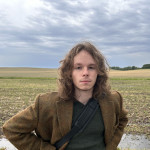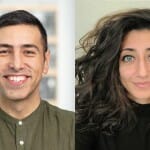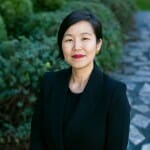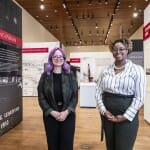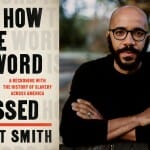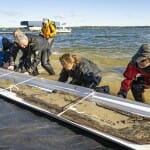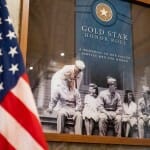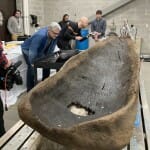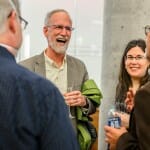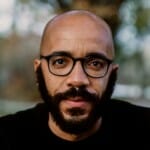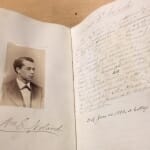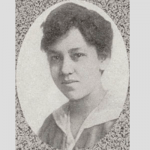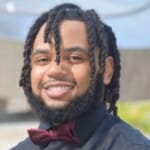Tag History
UW’s Puerto Rican Studies Hub explores the archipelago’s culture and history from a new point of view
The first-of-its-kind center in the Midwest aims to put ‘UW–Madison at the forefront’ of an academic field with growing reach.
Senior Amanda Grant, innovative artist and historian, awarded national Beinecke Scholarship
Amanda Grant, a rising senior at UW–Madison, is the recipient of the Beinecke Scholarship, a prestigious national honor that supports the graduate education of students with exceptional promise.
Pop star Bad Bunny needed a Puerto Rican history scholar. UW–Madison had just the one.
Bad Bunny collaborated with UW–Madison history professor Jorell Meléndez-Badillo on Puerto Rican narratives that accompany the new album “DeBÍ TiRAR MáS FOToS.”
Leopold’s journals that informed ‘A Sand County Almanac’ more accessible than ever before
Thanks to the careful work of passionate volunteers, all 1,100 handwritten pages of Leopold’s Shack journals are now more readable and searchable for public enjoyment and education.
National scholarship will allow UW student to continue inventive historical research
Axell Boomer, a senior from South Beloit, Illinois, is one of 19 college undergraduates nationwide to receive a Beinecke Scholarship this year. He is majoring in history and religious studies with honors in the liberal arts and honors in history. He anticipates graduating in the spring of 2025 and intends to pursue a doctorate in history.
Award-winning NPR podcasters to visit UW as fall Journalists in Residence
Rund Abdelfatah and Ramtin Arablouei of "Throughline" will meet with university students, faculty and staff to share their experiences and expertise.
UW’s Monica Kim named MacArthur Fellow
Historian and UW–Madison faculty member Monica Kim has been awarded a 2022 MacArthur Fellowship, also known as a "genius grant," for her work uncovering the experiences of ordinary people caught in war and complicating conventional narratives of conflict.
For students who worked on Public History Project, a rich and often emotional experience
Students played a crucial role in conducting research for the Public History Project and its exhibit, Sifting and Reckoning: UW–Madison’s History of Exclusion and Resistance. In the process, they learned much about the student experience during various points in the university's history.
Author Clint Smith to give Go Big Read keynote Nov. 1
Author of "How the Word is Passed: A Reckoning with the History of Slavery Across America," Clint Smith will discuss his book, chosen as the 2022-23 Go Big Read, in a keynote address on Nov. 1 at UW–Madison's Memorial Union.
3,000-year-old canoe recovered from Lake Mendota
On a brisk and breezy first day of fall, divers recovered an ancient Ho-Chunk canoe from the depths of Lake Mendota, an effort coordinated by the Wisconsin State Historical Society and members of the Ho-Chunk Nation.
3D scan will reveal the stories hidden within 1,200-year-old Wisconsin canoe
Lennon Rodgers of the College of Engineering performed the scan on the 15-foot dugout canoe recovered in 2021 from the waters of Lake Mendota, part of the ancestral home of the Ho-Chunk Nation.
An update on the Public History Project
Director Kacie Lucchini Butcher discusses the UW–Madison Public History Project — "a multi-year effort to uncover and give voice to those who experienced, challenged and overcame prejudice on campus" — as it builds toward a public exhibit in fall 2022.
Why do we call it herd immunity?
The term first appeared in a British public health journal in 1923 in reference to bacterial transmission in mice. This study looked at vaccines, and how vaccinating some mice out of a group — or a “herd” — might begin to prevent bacterial transmission between them.
In virtual classrooms, UW–Madison instructors find meaningful ways to connect with students
Ever since the COVID-19 pandemic forced many courses online last year, UW–Madison instructors have been investing great thought and effort into making their virtual classrooms engaging and inclusive.
More than a footnote: Remembering the life of William S. Noland, the first known Black graduate of UW–Madison
Noland, a member of the first Black family to establish permanent residence in Madison, received his UW degree on June 17, 1875.
When perseverance is the only option: Mabel Watson Raimey
Raimey is believed to have been the first African-American woman to graduate from UW–Madison. And that is just the beginning of her story.
Student to student: Black History Month is more than just a month
Black history can mean appreciating an influential figure who lived long ago, or a deeply personal present-day connection. UW students tell what it means to them.

